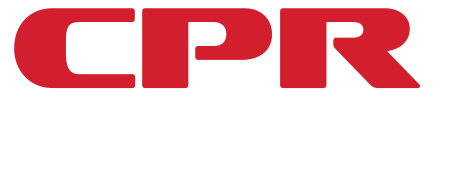CPR is a skill that saves lives. It’s that simple.
The majority of cardiac arrests occur in the home. So, when it happens, it’s more than likely that a family member or friend – possibly even you – will be responsible for providing life-saving first aid.
It stands to reason then, that CPR is vital. It could be the difference between life and death for a loved one, a friend, or even a stranger. And failure to learn CPR skills now, while there’s still time, is a mistake – an ‘avoidable mistake’.
Imagine this: a six-vehicle crash on the highway – including a petrol tanker. A motorcyclist is airlifted to hospital in a critical condition. Wrecked cars, oil and debris are scattered across the road.
Numerous ambulances rush to the scene. Along with police and firefighters. And a dozen tow trucks. Highway traffic is at a standstill for more than two hours. News choppers circle overhead to record the tragic carnage.
This was a real-life scenario. Countless lives were affected. But how and why did it happen?
I was left pondering this question as I waited in the gridlocked traffic for more than two hours, late for work and stressed, and I couldn’t help but summarise the answer: someone made a mistake.
Was that someone speeding? Tailgating? Foolishly swerving? Distracted? Looking at their phone instead of the road? Changing the radio channel? Or did several drivers make simultaneous mistakes?
Whatever the cause, the outcome of the crash was terrible. It was life-changing for many many people. But, most likely, this dreadful event was avoidable.
Don’t Die July is a campaign that aims to help people around the world – people like you – avoid making a mistake – an avoidable mistake.
It wants you to learn basic CPR101. To be ready and prepared now, with the right skills, understanding and confidence, to perform CPR when an out-of-hospital cardiac arrest emergency happens.
Statistics show that tens of thousands of people across Australia, the UK and USA, and many more around the rest of the world, will experience an out-of-hospital cardiac arrest this year.
A cardiac arrest simply means their heart stops beating. But someone with CPR skills can help re-start that heart.
Around 80% of those health emergencies will happen in the family home. Another 16% will happen at work.
If someone nearby the victim has the skills and preparedness to perform CPR – or its full name, Cardiopulmonary Resuscitation – the survival chances of that family member, friend or work colleague increases greatly.
To be clear: without a bystander’s CPR, the helpless victim has a very high chance of death.
Unfortunately, collectively, we are making a mistake – an avoidable mistake. Most of us have been slack in regard to learning such a simple-but-effective life-saving skill.
In Australia, just 46% of people know how to perform CPR. In other countries it’s much lower – in some nations it’s as low as one or two percent. We are setting ourselves up for a tragedy.
The Don’t Die July provides the answer to make sure we avoid the avoidable mistake that is not knowing CPR.
The Don’t Die July CPR101 course teaches how to perform basic CPR safely. What exactly is CPR? How does it work? What steps to follow to help someone who suffers a cardiac arrest.
The online course also includes videos by experts who show you how to use everyday household items to practice CPR in your own home. In your loungeroom, kitchen or bedroom.
To know more about learning CPR101 that could save a life, visit: https://dontdiejuly.com/
Just like that tragic highway accident, cardiac arrests will happen, but we can take steps now to avoid a bigger tragedy. And helping save a life.
A cardia arrest is a real-life scenario. And without CPR skills, life could be at risk. So, avoid the avoidable mistake. Sign up to Don’t Die July. Learn CPR

